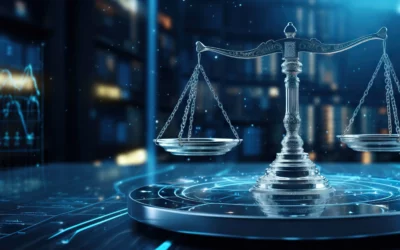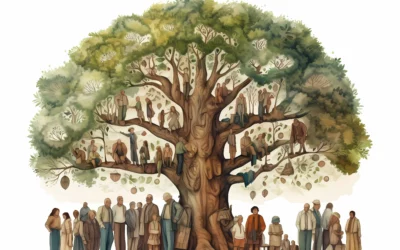
Written by William C. Duncan
March 17, 2021
Last week, the U.S. Supreme Court issued an 8-1 decision that answered a narrow but important question about religious freedom. Similar to the development of the rights we enjoy today such as freedom of speech, freedom of conscience and the right to vote, the court’s decision to strengthen religious freedom will strengthen other rights that have nothing to do with religion.
The facts of the case are important to understanding what the court decided and what it might mean for future cases. It involved a student attending Georgia Gwinnett College in Lawrenceville, Georgia, in 2016, Chike Uzuegbunam. As a committed Christian, Uzuegbunam wanted to share his faith with other students. He handed out religious tracts on campus and spoke with other students about his beliefs, only to be approached by college officials who asked him to stop.
The officials told him that he could share his beliefs but only in a part of campus designated as a free speech zone. This posed a challenge for Uzuegbunam because the zones were small and difficult to find; by his account “they only made up 0.0015% of the campus and were only open for about 10% of the school week.” Added to this difficulty, using the zones required a reservation, and he was required to submit the materials he wanted to distribute to the school’s administration for approval before he could share them.
Uzuegbunam was willing to do this, so he met the requirements and went to the designated speech zone to begin sharing, only to be stopped again. This time, campus police officers told him he could not continue because there had been a complaint about his activities, and that if he did not stop he would be disciplined.
This precipitated a lawsuit to seek redress for the violation of his rights by asking for “nominal damages” (in this case $1) for the violation of his rights and to persuade the university to respect all students’ right to engage in constitutionally protected speech on campus.
Fortunately, the lawsuit quickly accomplished the second aim. Though the school initially argued its restrictive policy was justified because Uzuegbunam’s “discussion of his religion ‘arguably rose to the level of fighting words,’” it quickly decided to relent and drop the challenged policy.
This left open the question of whether the school could be punished for violating Uzuegbunam’s rights.
The school argued, and the lower courts agreed, that the case was now moot since the policy had changed. The idea that a case can be moot and thus must be dismissed stems from the requirement in Article III of the Constitution that federal courts can only decide “cases” and “controversies,” which is understood to mean actual disputes rather than hypothetical questions. So, the federal courts will not consider a suit when there is no longer a disagreement between the parties.
Uzuegbunam, however, pressed his case because, although the parties now both agreed that the policy was unconstitutional, he wanted the courts to recognize that he had been subjected to a constitutional injury by the court’s actions.
The Supreme Court heard oral argument in the case on Jan. 12 and issued its decision on March 8. Justice Clarence Thomas wrote the majority opinion, joined by all but Chief Justice John Roberts.
Thomas relied on historical practice in the courts to demonstrate that those bringing a lawsuit have long been able to seek nominal damages when they have suffered a legal injury. That is at least in part because some damages are hard to quantify, but also because the vindication of the right can be accomplished even with small dollar amounts. This historical practice “avoided the oddity of privileging small-dollar economic rights over important, but not easily quantifiable, nonpecuniary rights.”
The chief justice’s dissent focused on the Article III question. He expressed a concern that litigants might try to get around the requirement that courts can only hear actual disputes by tacking on a claim for a symbolic award to a case where there is not really an ongoing disagreement in order to draw the court into issuing something like a hypothetical opinion.
The majority’s response is that a person seeking only a small amount of financial compensation will still be required to show they have experienced a violation of their rights. They also noted small amounts of compensation are already recognized by the courts as satisfying the requirement that a court order would be able to settle a controversy: “[P]etitioners still would have satisfied redressability if instead of one dollar in nominal damages they sought one dollar in compensation for a wasted bus fare to travel to the free speech zone.”
The court’s decision may not lead to much future litigation, but it clearly establishes that universities cannot limit the rights of students to exercise their rights, such as to share their religious beliefs, only to give in when pressed to avoid accountability for a violation that already occurred. Without this ruling, there is a chance that a university could hamper a student’s rights in the hope that they will just accept the limitation without protest, only to quickly give in and avoid liability by changing its policy in case of a lawsuit.
The lopsided decision reflects the reality that allowing Chike Uzuegbunam to defend his right to share his beliefs will likewise protect many students and others who want to share nonreligious messages or exercise rights other than religious freedom. Far more than a victory for faith, this case is a victory for the rights of every American.
More Insights
Read More
App store regulations are necessary, constitutional, and popular
In the absence of age verification requirements, there are no limitations on what apps children or youth can download. This raises at least two significant concerns.
The (AI) doctor will see you now? Exploring the potential of artificial intelligence in healthcare
Could AI replace your doctor or simply help them better do their jobs?
How 16 Utah school districts are strengthening parental partnership through online access
Parents and schools are better education partners when schools provide parents with access to curriculum information and parents effectively utilize it to support their students.


